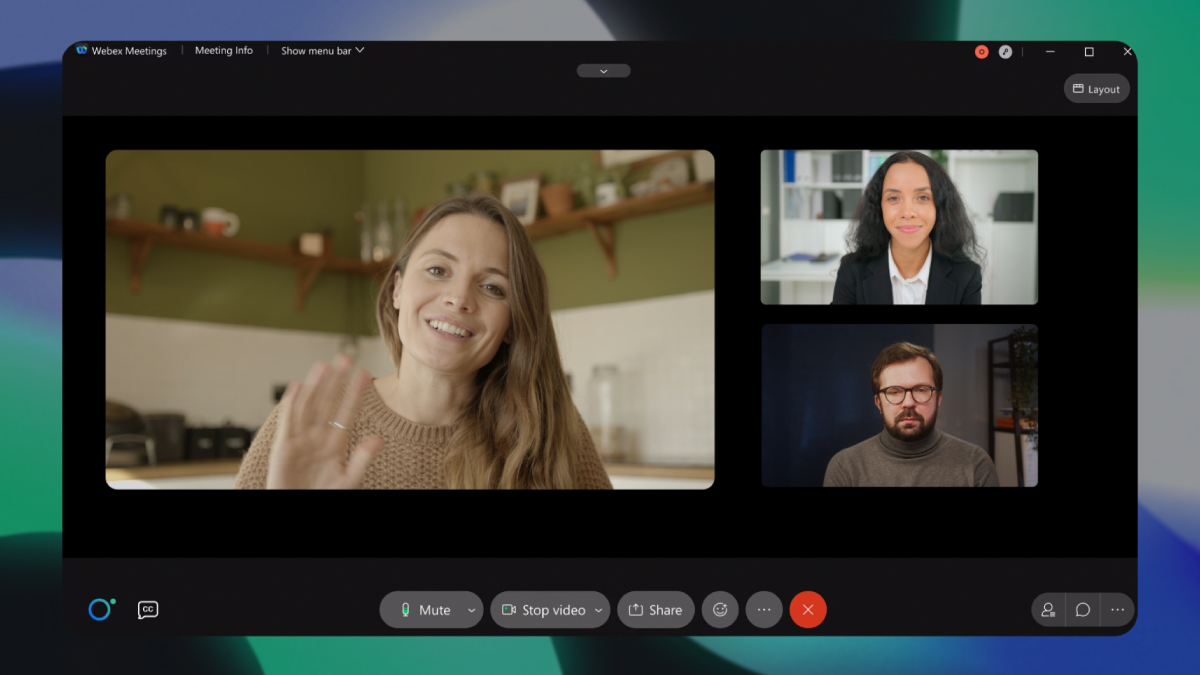SYDNEY, AUSTRALIA, 30 October 2013: Employees who telework one to three days per week – so-called ‘hybrid teleworkers' ‑ are more productive than workers who do little or no telework, according to a new study jointly undertaken by the University of Melbourne's Institute for a Broadband-Enabled Society and AUT University's NZ Work Research Institute, and commissioned by Cisco Systems.
The research, which surveyed more than 1,800 employees and almost 100 managers in 50 businesses and organisations across New Zealand and Australia, found that teleworkers believe their flexible work arrangements allow them to be more productive and to perform better at work, while managers found teleworkers to deliver better work outcomes and suffer less from absenteeism. The key statistics include:
Teleworkers are more productive and satisfied with their job
- 71 percent of employees agree that teleworking has a favourable influence on their overall attitude toward the job, suggesting that telework opportunities are important for retaining employees.
- Productivity was rated significantly higher on a range of measures by hybrid teleworkers, with ratings up to 12 percent higher for teleworkers, suggesting a meaningful difference in output.
- 73 percent say using teleworking technologies fits well with the way they like to work.
- Only 4 percent agree teleworking makes it difficult to communicate and collaborate with colleagues.
Teleworking is now mainstream, with ‘hybrid teleworking' the most popular model
- 89 percent report teleworking one or more hours per week, with the mean number of telework hours standing at 13 hours per an average work week.
- The majority of employees are either low-intensity teleworkers (less than eight hours per week teleworking: 35 percent) or ‘hybrid teleworkers' (one to three days per week: 38 percent). Just 16 percent telework more than three days per week.
- 85 percent of employees telework from home, with 77 percent having an office or permanent workstation available at their employer's workplace.
The key enablers of successful telework are trust, good management and the right technology support, but organisations could provide teleworkers with more support and structure
- 70 percent agree that their manager trusts them to be productive and focused on work outcomes while teleworking.
- Nearly half of teleworkers (47 percent) say their employer or manager is aware that they telework, but there is no formal telework policy or agreement in place.
- Fewer than 50 percent have received telework-related training across areas such as management of teleworkers, providing a safe and healthy work environment in alignment with the Occupational Health and Safety Act (OH&S), and the effective use of technology to stay connected with colleagues and work systems with the appropriate levels of security.
- The majority of managers indicated they would like more training to help them manage remote employees and to help teleworkers successfully set up their home office.
"The benefits of telework and flexible work practices have been recognised informally for a long time, but for the first time, we now have a substantial piece of Trans-Tasman research to quantify the benefits and opportunities telework presents," says Professor Tim Bentley, Director of AUT University's NZ Work Research Institute.
"While the research has shown us that productivity among teleworkers is rated significantly higher on a range of measures by ‘hybrid teleworkers', we have also found that organisations could benefit even further by undertaking more cost-benefit analysis of their teleworking arrangements, as most are not currently measuring the positive benefits of these work arrangements either culturally or in terms of the real estate savings," concludes Professor Bentley.
Dr Rachelle Bosua of the University of Melbourne and the Institute of a Broadband-Enabled Society (IBES) says: "Work patterns and places of work are changing dramatically as a result of the increased adoption of digital technologies. This poses unique challenges to successfully manage a new era of flexible workers and measure productivity. Our study confirms that flexible work is a way for managers to invest in the wellbeing of their workers, increasing productivity, job satisfaction, and retaining talented workers."
"We have for a long time understood the rewards of flexible work arrangements that empower employees with the freedom to work from home or away from the office. However, this Trans-Tasman Telework research confirms that small, medium and large businesses and public sector organisations can gain a measurable and significant productivity benefit by offering flexible work arrangements. Governments in Australia and New Zealand that want to improve the productive output of their economies should focus on policies that support and encourage the trend toward mobile working. Employers should ensure supportive manager attitudes, peer support and technological support, as well as formal training and policies," said Tim Fawcett, general manager of government affairs & policy for Cisco Australia and New Zealand.
For a copy of the report, please visit www.workresearch.aut.ac.nz.
Notes to editor:
Methodology:
The Trans-Tasman Telework Survey was undertaken between April and September 2013. It surveyed 1,827 employees and included nearly 100 qualitative interviews with managers from 50 organisations. The study was cross-industry and included a wide range of organisation sizes, from small-to-medium enterprises through to organisations with 200-plus employees.
About AUT's NZ Work Research Institute
NZWRI provides high quality research across a broad multidisciplinary programme concerned with people and work. Unique in New Zealand, the Institute's Future of Work Programme addresses the challenge of rapid workplace change, driven by new digital technologies, globalisation, environmental pressures, changing workforce demographics and new forms of social interaction and organising. The scope of the programme is broad yet distinctive, and involves collaboration between research groups and key individuals from across AUT University's faculties along with our external partners in a well-coordinated multidisciplinary initiative.
About University of Melbourne's Institute for a Broadband-Enabled Society
The Institute for a Broadband-Enabled Society (IBES) is an interdisciplinary research institute at the University of Melbourne aligning research and industry interests across four research themes; business & government, culture & community, education & learning, and health & ageing to drive innovation in broadband applications for the benefit of society. Established in 2009, it is supported by the University of Melbourne, the Victorian State Government and its industry partners.
IBES, in partnership with Cisco, will be hosting the Telework Congress on Tuesday 19 November 2013. This will be a leading event in the Australian Government's National Telework Week. Details and registration can be found here: http://teleworkcongress.com.au
About Cisco Systems
Cisco (NASDAQ: CSCO) is the worldwide leader in IT that helps companies seize the opportunities of tomorrow by proving that amazing things can happen when you connect the previous unconnected. For ongoing news please go to http://thenetwork.cisco.com
Editorial contacts:
Esther Harward, Communications Manager
AUT University
+64 21 632309 or esther.harward@aut.ac.nz
Adam Lodders, Communications Manager
University of Melbourne, Institute for Broadband Enabled Society
+61 3 83446709 or alodders@unimelb.edu.au
Linda Horiuchi, Senior Corporate Communications Manager, ANZ
Cisco
+61 2 8446 6343 or lhoriuch@cisco.com



